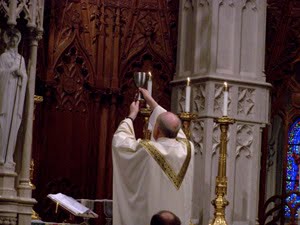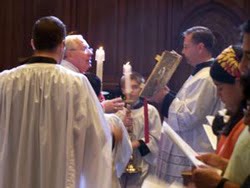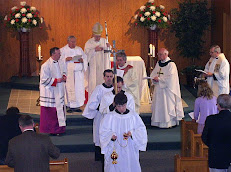It is doubtful that Henry Tudor thought he was changing the faith of his realm when he wrested control of the English Church from its natural obedience to the Holy See. In his will, he provided for two Masses to be said daily for his repose; only one of that will's provisions that wouldn't be carried out, as the regents of his son Edward began the purge of Catholicism from the English Church before his body was cold!
We have five articles in Anglican Embers dealing with the first centuries of Anglicanism, and the struggle for Catholic faith in England, which, despite the hierarchical separation that was made permanent after Elizabeth I's accession, was never complete as long as there were members of the faithful who clung to their faith.
The first of these was published in volume 1, number 12 (Advent 2006), and bears the same title as this post. Especially for those who haven't spent much time looking at the history, these may prove to be helpful.
Find the article at: http://www.anglicanuse.org/AE_1_12_Cavanaugh-Catholic-HenryVIII.pdf
Meet the Reverend Thomas Blackburn, of Ripon (1)
-
In March, 1570, there was an unusual spectacle in the mighty Church of S
Peter at Ripon (one of great S Wilfrid's great foundations). The sight to
be see...
6 hours ago












No comments:
Post a Comment